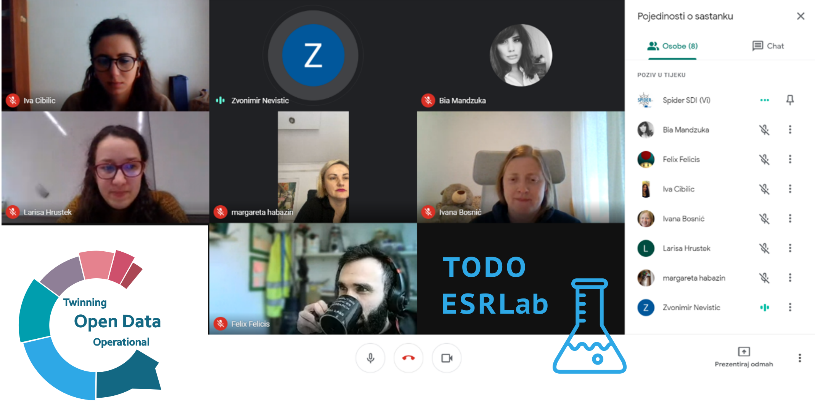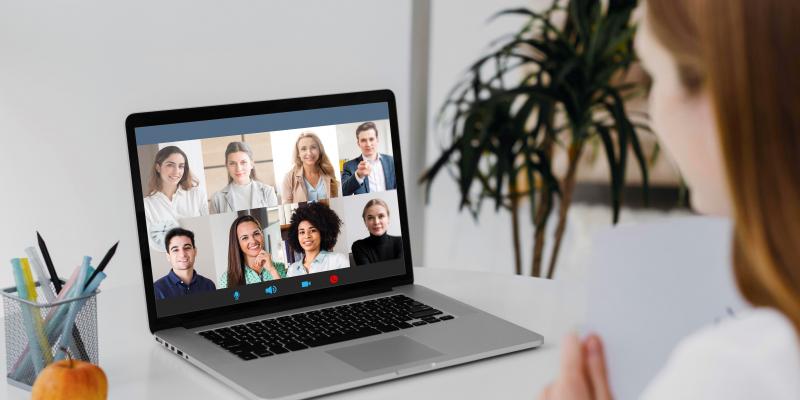TODO ESRLabs, as initially planned, are meant to bring together Early Stage Researchers coming from different scientific fields to exchange ideas and share knowledge.
The idea behind it is to create unofficial, friendly meetings to boost innovative interdisciplinary research. To date, there have been three ESRLabs organized by different ESRs from partner Universities where ongoing scientific activities and plans for the future ones were presented by ten actively included young researchers.
For instance, Larisa Hrustek from the Faculty of Organization and Informatics is researching how open data and digital technologies can bring innovation to the agricultural sector. Colleagues from the Faculty of Geodesy are actively working with open spatial data related to different topics. To start with, Zvonimir Nevistić will design and implement a spatial data infrastructure that will improve the availability and usability of planetary spatial data. Adam Vinković is trying to use the potential of open data in support of cycling activities while Iva Cibilić is researching cartographic visualizations and modelling of open data. The proposal of the establishment of a joint university spatial data infrastructure to make academic data open to the public came from Karlo Kević who is working on a conceptual model of such an SDI. Filip Varga from the Faculty of Agriculture is currently working on an assessment of the quality of open botanical data. Future idea is to develop a quality assessment tool usable with any kind of spatial data, not just botanical records. Emanuel Guberović, ESR from the Faculty of Electrical Engineering and Computing, is working on federated learning while using open data with an open neural network exchange format. As for the Faculty of Transport and Traffic Sciences ESR, Bia Mandžuka is using open data in traffic and transport services with the aim to improve open journey maps. Finally, Margareta Habazin from Law is researching the legal aspect of open data.
This concept of ESR meetings already proved to be beneficial since many researchers received valuable advice on how to proceed with their work and solve some problems they have encountered in their own research. Except for ESRs, who complement each other with their different knowledge, meetings are usually also attended by some of the Consortium’s experts whose experience and knowledge can be of great value. Sometimes, much time and effort are saved just by a piece of advice received at the right time. It will be interesting to see how ideas regarding open data usage develop over time.

